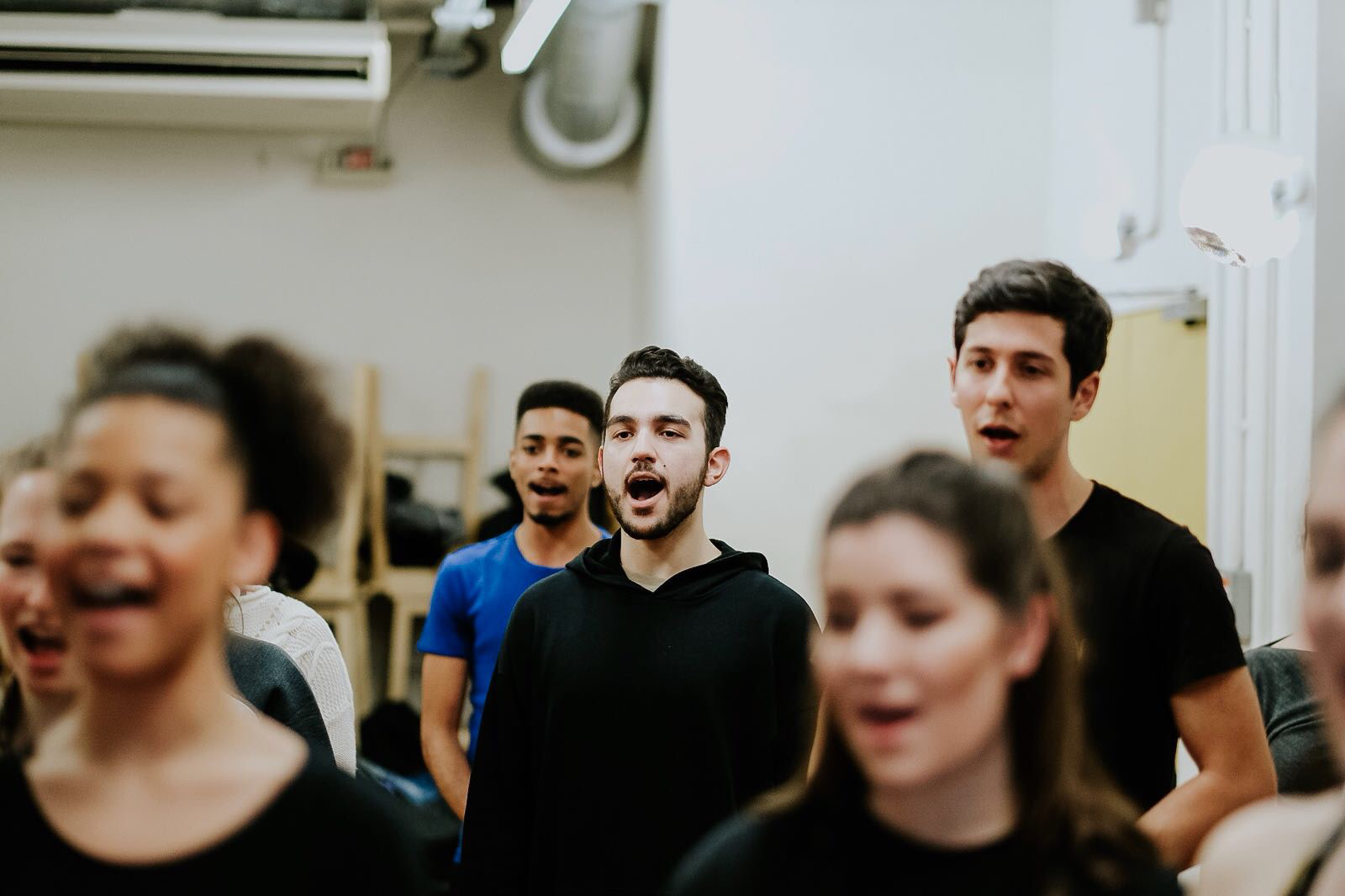Tips from Spotlight experts about how to make the most of your profile and your membership.
Keep your profile professional… it is not a social media account.
Updating your Spotlight profile
1. Keep your professional credits up to date and spelt correctly. Make sure to fill out every field possible as casting directors will often search by production, director, etc.
2. Keep your ‘About Me’ section brief, updated and relevant. If you’ve added details of a production you’re currently appearing in, once it’s complete, don’t forget to move it to your credits. Use the space to give more details about the skills which make you stand out from other performers. Reviews and awards can be included in this section too, as well as details about visas or passports if you live abroad.
3. Make sure your current location is listed on your profile as casting directors frequently search via location. You can add up to three locations where you have an existing base on your Spotlight profile. For privacy and security, we will only display the region.
4. You can add your pronouns to your profile. To do so go to ‘edit basic details’ at the top of your profile, scroll down and you will see a box saying ‘further information’ next to ‘How would you like to be found on Spotlight?’ , this is a free text box where you can display your pronouns.
5. Ensure that you have a language and accent marked as native on your profile. This is so you’ll appear in all of the appropriate searches.
Be honest about your casting type
6. Always be honest about your playing age; you can publish very precise age ranges on your Spotlight profile. Only choose a range that you can realistically be cast to play, so take some time to reflect on this and check it regularly.
7. Be truthful when listing accents and languages. When casting directors call you into a room they need to have confidence that you can do them (often at short notice) so try to only publish those you can do well and naturally. You can also add some audio to your profile to demonstrate the accents you can do. The content of what you are reading doesn’t matter, casting directors just want to hear that you can do a flawless accent.
8. Be honest about what skills you publish on your profile. If you can ride a horse – great! – but don’t list it if you’ve only been on a horse once. If you feel comfortable using a skill on set or on stage then add it to your Spotlight profile. Make sure to always list any driving licences too. Are we missing a skill that you want to add to your profile? Please email feedback@spotlight.com
Casting directors tell us they only like to see 4-5 images of various expressions so less is definitely more.
Photos/Headshots
9. Take a look at your photos. Do they still look like you? Are there too many? Casting directors tell us they only like to see 4-5 images of various expressions so less is definitely more. You don’t need to add production shots, just photos from your most recent headshot session.
10. It’s always a good idea to get a few opinions on new headshots so make sure to consult with your agent, friends or family before uploading to your profile. The photo that you like the most might not be the most suitable headshot for your profile – that is why getting a variety of opinions can be really helpful!
11. It’s easy for you to add photos to your Spotlight profile. The photo management system can be used on all devices and allows you to upload on the go. Though we do recommend editing your profile on your laptop instead of your phone for ease.
12. We all love sharing photos on social media, but sometimes a photo is better suited for your Facebook profile than your Spotlight one. Always keep in mind that your Spotlight profile is like your CV, so think about what a photo is saying about you professionally before adding it.
Showreels
13. Entice casting directors to click and play your showreel by using the title to describe what’s in it. Edit the filename so rather than being called ‘showreel 1’ or ‘file_3’ etc. it is actually descriptive eg ‘Scenes from Hamlet, EastEnders and a banking commercial’.
14. Casting directors can’t always watch a whole showreel so make sure to open strong. Re-editing your showreel can make it feel completely new and a simple edit can change everything. Make sure your strongest scene is at the beginning of the showreel. Don’t start with montages or still photographs, casting directors want to see you act.
Self-tapes
15. Try to film a self-tape as soon as you reasonably can to give yourself time to fix any problems. We know sometimes it can be hard, especially if you have been given a short amount of time to prepare, but often the casting director will be eager to see tapes from the moment that the first one is submitted.
16. When self-taping, shoot in landscape (like a TV or cinema screen). Always shoot against a neutral background with good lighting so your face is clearly visible.
Advice from industry professionals
17. Take advice from professionals who are working in the industry. The news and advice section of the Spotlight website is a fantastic resource and is full of articles, videos and podcasts from industry experts and first person accounts who provide tips, knowledge and support.
Be proactive
18. Make a diary note each month to check in with your profile. Is it up to date? Can you remove any old information? Have you got any new skills to add?
19. Why not try and grab a show or a film if you have a free afternoon? Have a look for workshops or acting classes which push you out of your comfort zone and help you learn a new skill. The Actors Guild always have regular workshops here at Spotlight
20. Don’t be afraid to promote yourself on social media. Fellow performers, casting directors and agents like to hear what you have been up to.
21. Make sure you have a professional email address and voicemail message. If casting directors, directors or producers get in contact with you directly, you don’t want them to have to email an address you created when you were 12.
Castings and auditions
22. In castings, it’s important to come into the room as yourself and show your ability to take on a role/direction. Subtle hints of what the character is like in your clothing can help the director see you in the role… but don’t overdo it.
23. If you can, try to be off-book for a casting unless you’re told otherwise. If you fluff a line just carry on – the director or casting director will call cut if they need to.
24. Every director and casting director is different so make sure to read all correspondence and audition information carefully. Check that you know the location, journey times and exactly what you need to do when you’re in the room so that you can give your best performance on the day.
25. And finally, remember, we’re all in this industry to see and help each other succeed. Auditions can be stressful and are often last-minute but never forget casting directors really only ever want to find the right person for the job so don’t fear them.
Follow us on Instagram, Facebook or Twitter to get more #RaiseYourProfile tips from Spotlight experts.












